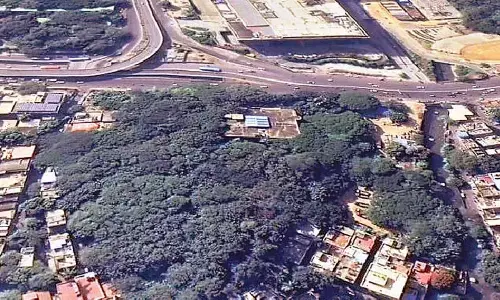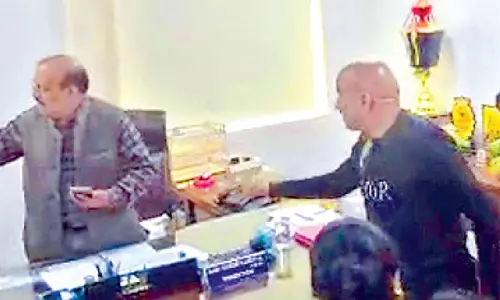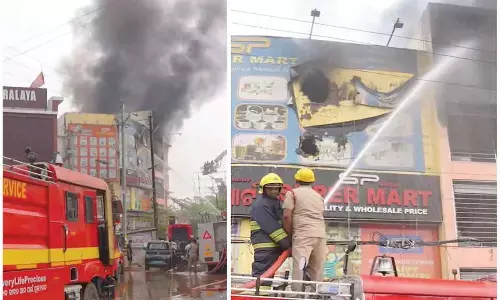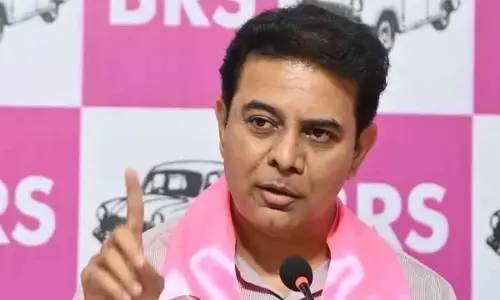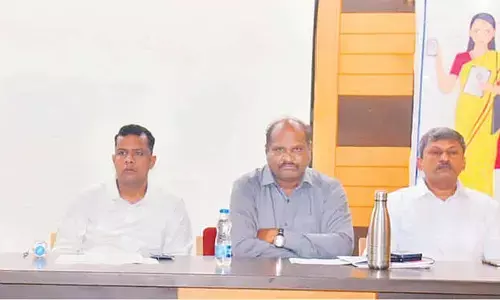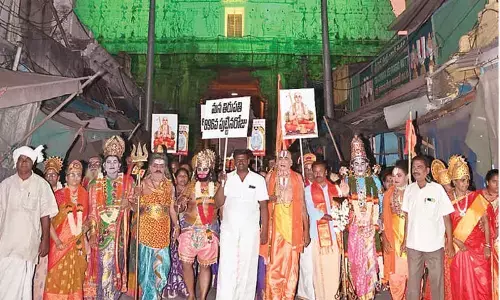Day 29: RTC strikers smell a rat
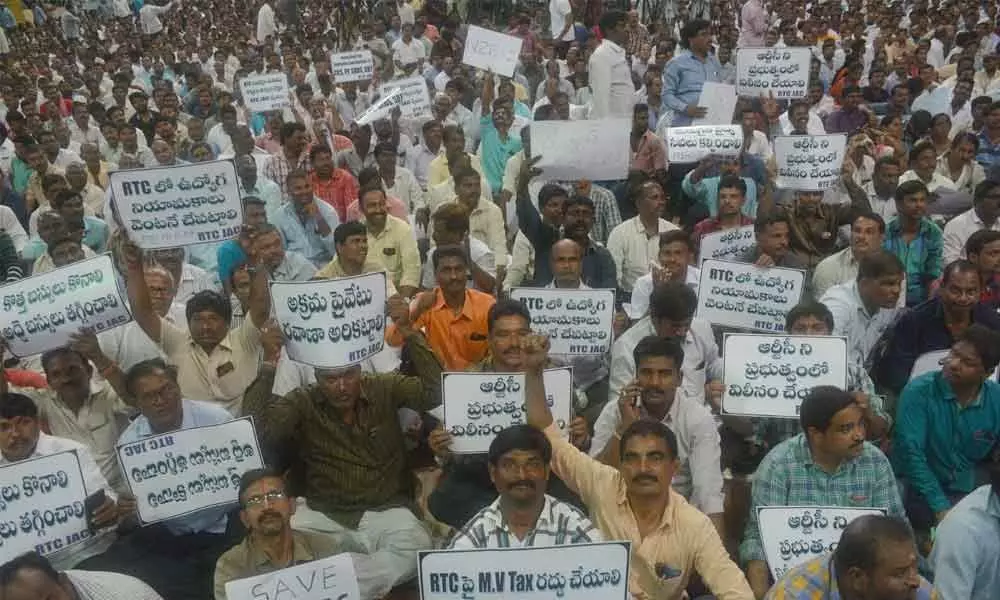
The way the government is going ahead with its moves to privatise TSRTC, unfazed by the strike that has entered 29th day on Saturday, it becomes clear that the intention of the government is to pull the curtains down on the corporation.
The way the government is going ahead with its moves to privatise TSRTC, unfazed by the strike that has entered 29th day on Saturday, it becomes clear that the intention of the government is to pull the curtains down on the corporation.
The employees are pinning their hopes on the High Court where the case is being heard.
A careful study of the way the government has been adopting 'a nothing doing' attitude gives clear indication that it is hell-bent in making the statement of Chief Minister K Chandrashekar Rao that the 'RTC is a closed chapter' a reality and hence has done nothing to find a solution to the longest RTC strike in the history of the Telugu States.
It is apparently waiting for the court to close the case so that it can go in for privatisation at a faster pace. If that happens, the worst affected would be the 48,000 employees who have been on strike for the past 29 days.
The government is ready with a Draft Amendment Bill to the TSRTC to legalise its proposals to privatise the corporation.
The way it had refused to call the employees for talks despite courts direction under the guise that it had not received the copy of the directions, the sketchy reports it had been presenting to the High Court on the dues the corporation has to get from the GHMC and the government in form of reimbursements etc and continuing with same strategy even when the officiating Managing Director Sunil Sharma was summoned by the court, and repeated claims that nothing needs to be paid to the corporation makes it clear that with every passing day the employees are losing ground very fast. Come what may, privatisation is certain is the clear message that is being conveyed.
It is surprising that the government which pats its own back for having brought a turnaround in Singareni has failed to repeat a similar act in regard to the TSRTC.
Interestingly, the Transport Minister, in the Assembly on September 9, 2019, said that the GHMC had to pay Rs 1,492 crore to the RTC and even the government had to reimburse the corporation the loss it had suffered on account of various bus passes etc.
But instead of a turnaround of the corporation, now there is a turnaround of government argument which claims it owes nothing to RTC.
On 17 October, TSRTC officials submitted a bankruptcy plea before the High Court of Telangana. The corporation, which has to pay Rs 239 crore towards salaries per month, said it only had Rs 7 crore in its coffers.
In an affidavit, Sunil Sharma, Principal Secretary for State Transport, informed the High Court that the TSRTC had incurred losses amounting to Rs 5,269 crore over the years.
As per the revenue model worked out by the government, the TSRTC will now own and run only 50 % of its buses. The remaining 30 % of the buses will be hired but will be run by the RTC and another 20 % will solely be privately operated. This will be the first step towards privatisation.
The strategy appears to be tire out the employees, go ahead with simultaneous measures to privatise the corporation. The government is of the opinion that the impact of the strike had now started waning as it was operating more and more buses.
Yes, the fact is there is no sort of chakka jam but then situation is not normal. There are serious allegations that even some of the union leaders and even some top officials of corporation have some holdings in private buses that are under hire with the RTC.
Of course, the leaders have denied it but then the employees too have started feeling that perhaps there is some element of truth in the allegations.
Some say that this time the RTC unions had gone on indefinite strike without taking it forward step by step. In the past, they claim the unions used to sit for talks and come to some agreement on certain demands, give two or three months' time for the government to take a decision on the main demand and then again go on strike.
But now they have started feeling that there could be a game plan to deprive 48,000 employees of their livelihood. All these are of course unsubstantiated allegations, but one needs to ponder over them as the strike so far has failed even to force the government to pay the salaries for the month of September when the employees were on duty.
The longest strike in RTC was in 2011 when buses remained off the roads for 27 days and the employees of the then Andhra Pradesh State Road Transport Corporation (APSRTC) from Telangana region joined 'Sakala Janula Samme' or the mass strike to demand statehood for Telangana.
The third major strike in APSRTC was witnessed in 2001 when employees struck the work for 24 days, demanding a pay revision. But never did the employees commit suicide.
This time unfortunately some committed suicide and some died of heart attacks as they were worried over their future. About 13 employees have lost their lives so far.
The corporation is suffering daily a loss of about Rs 1.5 crore due to the strike. Despite tall claims, the TSRTC could not manage to operate full services with the help of temporary employees.
At the previous hearing on October 28, the High Court asked the government whether it could provide Rs 47 crore to meet some demands of the employees to end the strike.
However, the government expressed its inability to do so on the ground that it gave the corporation more funds than what it owed. The court asked the MD to present the details of the dues from the government, but even that, according to the court on Friday, was a sketchy report.
The big question that is worrying the employees now is can court really direct the government not to privatise the corporation? The State government is armed with recent Central Act which gives freedom to the States to privatise the RTCs.
Executive decision unless it violates constitutional and legal provisions cannot be found fault by the judiciary, the government feels. The general thinking in the official circles is that it is matter of another 10 or 15 days before the RTC would get a new look with more number of hired private buses.
The Cabinet which would meet on Saturday will give its nod for privatisation of more routes. What now requires to be seen is to what extent the private operators will agree to run services in rural areas where revenue generation would not be high.


